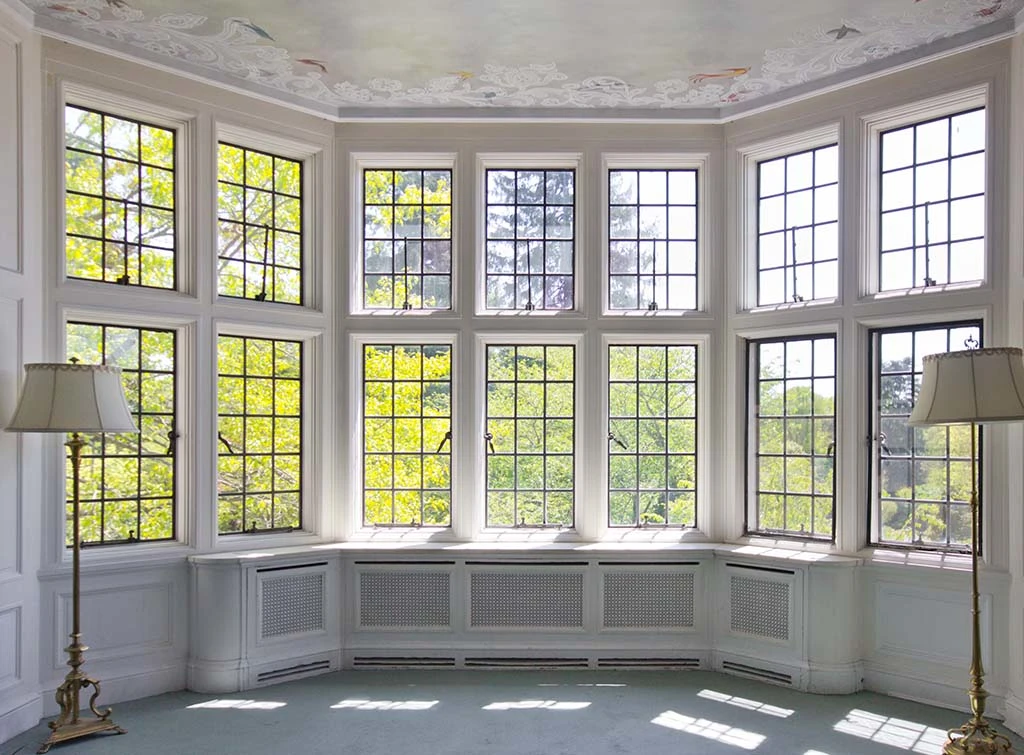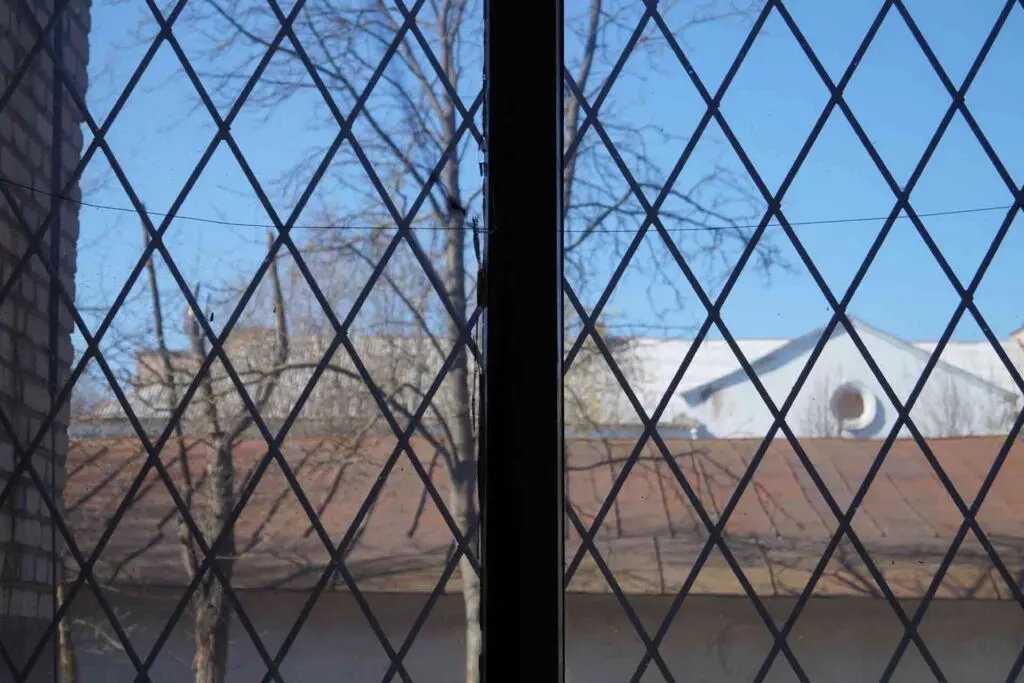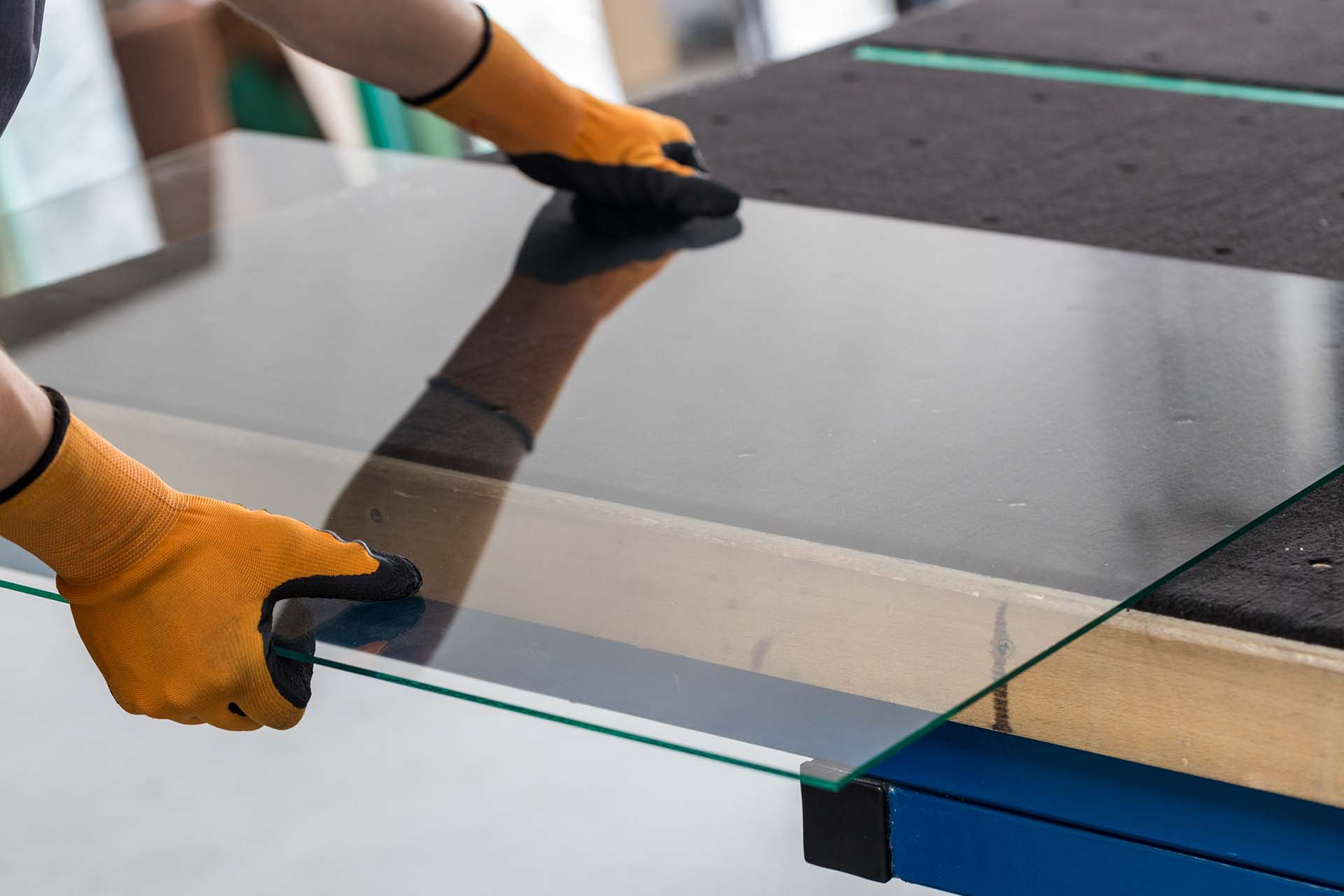Blog>Expert Advice>Should I seal leaded glass?
Last updated: 30 August 2024
Should I seal leaded glass?
If your leaded glass is leaking water or rattling, it could be time to replace the seal. Read on to learn how to seal leaded glass and what you can expect to pay.

Leaded glass can last hundreds of years (as many period homes are a testament to!), but only if correctly maintained. That's where sealing comes in.
Read on to learn how sealing helps to lengthen the lifespan of your leaded glass windows and decorative stained glass. We also explain how much you can expect to pay for a professional finish.
See the tradespeople we've checked and recommend for your job
What is leaded glass and sealing?
Leaded glass is made using small glass panels joined with iron or lead bars (called cames) to create an intricate pattern.
Historically, leaded glass gave structural integrity to single-pane windows. Nowadays, they serve as decorative features, injecting style and colour into our homes.
Making and installing leaded glass can be time-consuming and costly. However, when sealed to a professional standard, it will last for many years to come.
Benefits of sealing leaded glass
Sealing is key to maintaining your leaded glass and can help you avoid costly repairs in the future. Benefits include:
Weatherproofing
Sealing leaded glass protects against seasonal temperature changes and rain, which can cause the lead joins to expand and create small gaps for water to seep in.
If left untreated, this can eventually lead to the lead corroding, and you could have a total re-leading job on your hands.
Preventing oxidation
If left unsealed, lead can oxidise when exposed to air, leaving a whitish film on the surface. This is not only an eye sore but weakens the lead over time.
Reducing dirt build-up
Sealed leaded glass prevents dust and grime from building up in the crevices, making it easier to clean and improving clarity.
It can also help maintain the vibrancy of stained leaded glass.
The dangers of not sealing leaded glass
Sealing leaded glass is more than just about appearance and weatherproofing. It also helps keep the lead and glass pieces firmly in place, maintaining the glass's structural integrity and stopping it from bowing.
It will also prevent glass pieces from rattling – unfortunately, this is a common complaint with traditional lead windows.

How to seal leaded glass
While the methods of sealing leaded glass are relatively straightforward, it's a fiddly, time-consuming job. The sealing must be applied to both sides of the glass and each glass and lead joint.
How to seal leaded glass windows
Sealing leaded glass windows is a skilled job. We'll outline how to seal leaded glass windows so you can decide if it's a job you want to tackle. Otherwise, sit back, relax, and hire a glass restoration specialist instead.
Here's an overview of the sealing options available:
Leaded light cement
Cement is brushed between the lead and glass on both sides of the panel to waterproof it and prevent the glass from moving.
Putty glazing putty
Glazing putty, consisting of linseed oil and whiting, is applied. This is left to dry and hardens over time to form a tough seal.
Wax
Applying wax helps seal the cames, and a good car wax containing carnauba should do the job. However, this option isn't as durable as the glazing putty or cement mentioned above.
Weatherstripping
Another option is to use caulk and self-adhesive weatherstrips to seal the joints. While less messy than the options above, each piece needs to be cut down to the exact size of the came. This is fine for filling in the odd gap, but resealing an entire window could take some time!
Are you unsure if you have the time or DIY skills for the job? Then leave it to the professionals!
The cost to seal leaded glass
As tempting as saving some money might be, sealing is a vital step you shouldn't skip. If your leaded glass is left exposed to the elements, you could be looking at a total re-leading job.
A glass restoration specialist charges around £400to seal an average leaded glass window.
Take a look at our leaded window repair cost guide to find out more.
Or, for a personalised quote, pop your postcode in the handy search bar below to find glass restoration specialists near you.
See the tradespeople we've checked and recommend for your job
FAQs
How do I know if my leaded glass windows need sealing?
A leaking window or missing lead are clear indicators that the sealing on your leaded glass needs to be replaced.
However, before it reaches that stage, look for dried-out or flaking putty or cement between the glass and the lead, where rainwater will seep in. You can also look for droplets forming on the lead.
Can I seal leaded glass myself?
If you're a confident DIY-er and have the time, give it a go! However, we recommend hiring a glass restoration specialist for the best results.
Can I add new leaded glass into my home?
If you’re installing new leaded windows in a conservation area, you may need to apply for planning permission. Contact your local authorities as a first port of call.
More Expert Advice Articles
More Glass Restoration Articles
See the tradespeople we've checked and recommend for your job




